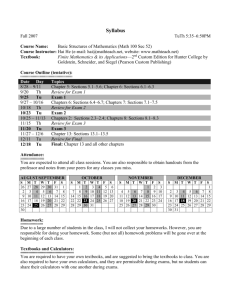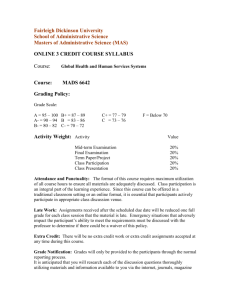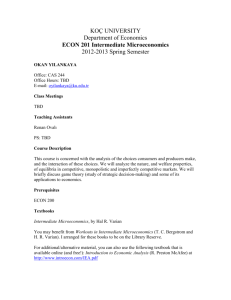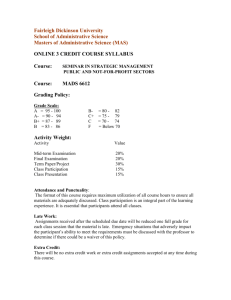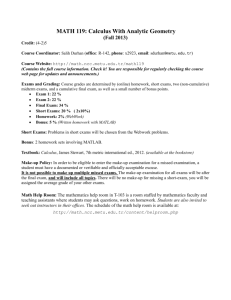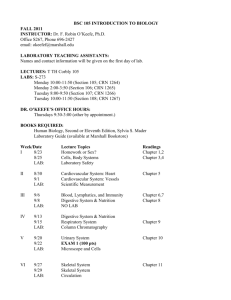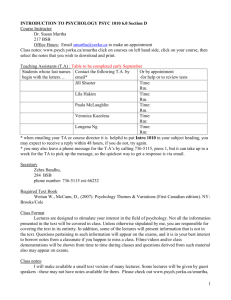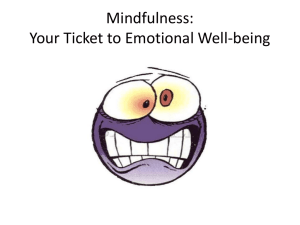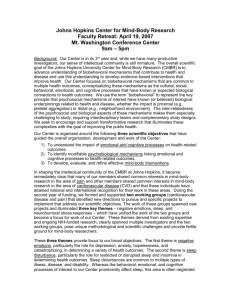Syllabus
advertisement
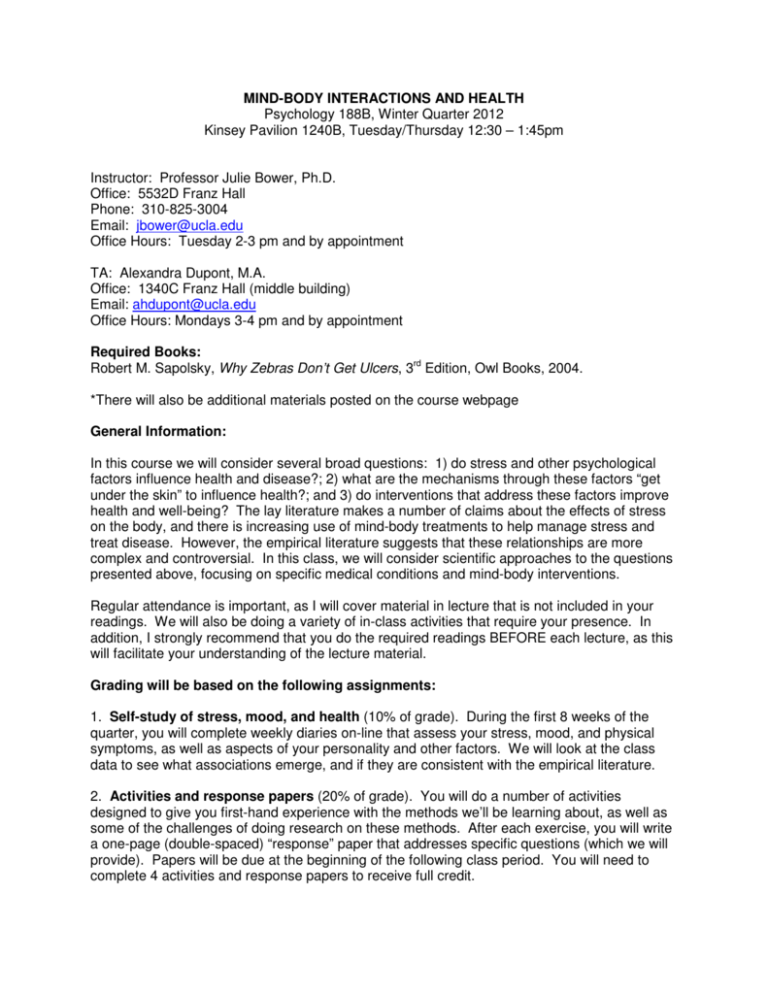
MIND-BODY INTERACTIONS AND HEALTH Psychology 188B, Winter Quarter 2012 Kinsey Pavilion 1240B, Tuesday/Thursday 12:30 – 1:45pm Instructor: Professor Julie Bower, Ph.D. Office: 5532D Franz Hall Phone: 310-825-3004 Email: jbower@ucla.edu Office Hours: Tuesday 2-3 pm and by appointment TA: Alexandra Dupont, M.A. Office: 1340C Franz Hall (middle building) Email: ahdupont@ucla.edu Office Hours: Mondays 3-4 pm and by appointment Required Books: Robert M. Sapolsky, Why Zebras Don’t Get Ulcers, 3rd Edition, Owl Books, 2004. *There will also be additional materials posted on the course webpage General Information: In this course we will consider several broad questions: 1) do stress and other psychological factors influence health and disease?; 2) what are the mechanisms through these factors “get under the skin” to influence health?; and 3) do interventions that address these factors improve health and well-being? The lay literature makes a number of claims about the effects of stress on the body, and there is increasing use of mind-body treatments to help manage stress and treat disease. However, the empirical literature suggests that these relationships are more complex and controversial. In this class, we will consider scientific approaches to the questions presented above, focusing on specific medical conditions and mind-body interventions. Regular attendance is important, as I will cover material in lecture that is not included in your readings. We will also be doing a variety of in-class activities that require your presence. In addition, I strongly recommend that you do the required readings BEFORE each lecture, as this will facilitate your understanding of the lecture material. Grading will be based on the following assignments: 1. Self-study of stress, mood, and health (10% of grade). During the first 8 weeks of the quarter, you will complete weekly diaries on-line that assess your stress, mood, and physical symptoms, as well as aspects of your personality and other factors. We will look at the class data to see what associations emerge, and if they are consistent with the empirical literature. 2. Activities and response papers (20% of grade). You will do a number of activities designed to give you first-hand experience with the methods we’ll be learning about, as well as some of the challenges of doing research on these methods. After each exercise, you will write a one-page (double-spaced) “response” paper that addresses specific questions (which we will provide). Papers will be due at the beginning of the following class period. You will need to complete 4 activities and response papers to receive full credit. 3. Two exams (70% of grade; Exam 1 = 30%, Exam 2 = 40%). There will be two exams based on readings and lectures. Each exam will focus on material included in the previous section, although the final exam will include some comprehensive questions that include material from the first weeks of the course. Make-up exams: If you MUST re-schedule an exam, please contact Dr. Bower well before the exam time so you can arrange to take a make-up exam prior to the regularly scheduled exam date. Decisions concerning these exams are made on an individual basis, and it is not guaranteed that you will be allowed to take an exam at other than the scheduled time. If you are ill on the day of the exam, call Dr. Bower BEFORE the exam time. You will need to bring a physician’s excuse to your make-up exam. Please note that make-up exams are generally more difficult than scheduled exams. Week Date Topic Reading Activity 1 1/10 1/12 Introduction and overview of stress and stress response Chapters 1 and 2 Quiz 2 1/17 1/19 Stress, depression, and cardiovascular disease Chapter 3; ENRICHD trial 3 1/24 1/26 Stress and immune-related diseases Chapter 8 (p. 144 – 171); Cognitive behavioral stress management trial 4 1/31 2/2 Stress and cancer Chapter 8 (p. 171 – 185); Supportive expressive group therapy and commentary 5 2/7 EXAM 1 5 2/9 Mind over body: appraisal, coping, and health Chapter 13 6 2/14 2/16 Emotion regulation and health Personality and health Emotional expression trial; Chapter 15 Emotional expression 7 2/21 Positive affect trial; Chapter 17 Gratitude/ kindness 2/23 The positive side: optimism, benefit finding, and positive affect Social factors and health 8 2/28 3/1 Body over mind: how your body influences your mind Sickness behavior paper; Exercise trial Exercise 9 3/6 3/8 Mind-body interventions: mindfulness, yoga, Tai Chi TBD Mindfulness 10 3/13 3/15 Relevance to undergraduate life and health, review Chapter 18 Relaxation
